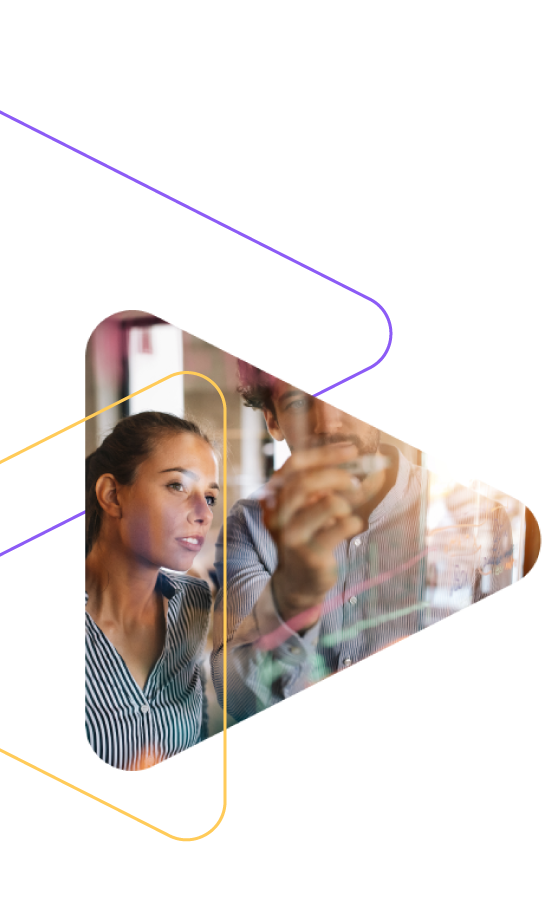We use cookies to enhance your website experience. By using this website, you agree to our use of cookies.
P2P Lending – How It Works And How To Invest In It
For some years now, the fintech industry has been expanding strongly in the direction of alternative lending. Lendermarket is part of this movement and specializes in the area of P2P lending.
On this page, we will explain to you what P2P lending is, how it works and how to invest in it. We hope that you will find out everything you need to know to get started. Have fun while reading!
Start Investing
What is P2p Lending?
In the case of a peer-to-peer loan (commonly used in its short form, P2P loan), a group of people come together to give another person or organization a loan. “Peer-To-Peer” means “from person to person” or “from a group of people to a group of people. The term “peer” comes from sociology and is defined as a person who feels they belong to a certain group of people or who is assigned to a certain group of people. The groups are differentiated on the basis of characteristics and are referred to as “peer groups”. The characteristics can be external or internal, e.g. age or certain interests. In our case, it is the interest in investments that many peers share and thus form a peer group. On the other hand, there is also the peer group of borrowers whose common characteristics is that they are all looking for financing.
To grant a P2P loan, at least two parties are required. A person or a group of people who are interested in the provision of funds for a loan and a person or a group of people who would like to receive a loan and accept the funds accordingly. But this immediately raises the question of who should control lending if the number of people is very high. It is indisputable that a lending business can easily be done by three people, e.g. two lenders and one borrower. But what about 100 or even 1,000 people? The traditional approaches fail here because they become confusing and involve a lot of effort. Imagine that 100 people meet at a notary and all sign the contract. Or think about the processing of all the partial payments to the individual lenders involved, which have to be made when a loan is repaid. You can tell that the effort quickly becomes greater than the benefit.
So a third party comes into play – the credit intermediary. Nowadays it is an online loan platform that receives loan applications and offers its group of investors applications that have been checked for successful feasibility. Therefore, the credit intermediary takes care of the entire process of a credit transaction, from the application and granting to the final repayment. For many intermediaries, debt collection is also an important task, as loans sometimes fall into debt and investors’ funds have to be recovered.
At Lendermarket, this form of lending is subdivided even further. The credit intermediary is split into two units: the credit issuing platform and the credit intermediation platform. The allocation platform, also known as the loan originator, is responsible for the processing of loan applications, from admission to the last payment. The brokerage platform groups these loans and offers them to investors on its marketplace. The issuing platform mainly deals with the borrowers, while the brokerage platform has more to do with the investors. Lendermarket works closely with the Creditstar Group, a large credit group with over 130 employees and more than 14 years of experience. Creditstar Group specializes in online lending, currently in eight countries and is expanding further. This two-phase approach with a strong partner by its side gives Lendermarket more control over the credit life cycle and thus offers greater organizational security for investors and borrowers compared to its competitors.
P2P lending has only experienced an enormous boom in recent years because the conditions for it had to be created first. Our world is becoming more networked than ever: the number of computers and smartphones is growing, and so is the access to the Internet. Also, the trend has developed that private investors are increasingly active on the Internet and shift their financial transactions, including investments, more and more into the online area. In recent years, the entry threshold has fallen sharply, and the idea of bringing hundreds of people together for an investment is no longer absurd.

14.1%
Average Annual Return
Put your money to work
Annual investment returns delivered since May 2019. Higher than traditional asset classes. You continue to earn interests while the invested loan is overdue.
How does P2P Lending work?
We have now learned what the basic structure behind a P2P loan looks like. But how exactly does the processing of such loans work? What role do the individual parties play? What types of credit exist and what advantages and disadvantages should you pay attention to?
In detail, a potential borrower applies for a loan at Creditstar online. The service is currently available in eight countries: Estonia, Finland, Sweden, Denmark, Poland, the Czech Republic, Spain and the United Kingdom. For each country, there is a separate website that the borrower can visit. Behind each website, there is a separate team and separate processes, which come from the different legal requirements of each country. The range of loan products also differ in the individual countries.
The borrowers must first register on the Creditstar site and verify their identity. They can then submit a loan application, which is different for first and subsequent borrowers. For first-time borrowers, the maximum loan amount is lower and the subsequent borrowers do not have to go through a verification, as they can comfortably manage further loan inquiries on their existing account. An automated check takes place after the loan application has been sent. In exceptional cases, the process is checked by a credit manager and the customer is contacted to clarify any open questions. It is important that the borrower is of legal age and has a regular income. In most cases, the borrower receives a decision within 15 minutes of submitting the application. Since Creditstar works with many banks, there is even the possibility that the borrower receives the money on their account in a matter of seconds.
A lot of information about the loans is available on the borrower’s user account. There the customer has an overview of all the payments and can check the exact status of the loan. The loyalty of the customers is important to the group. That’s why, in case of any problems about the further process, they act in dialogue with the borrower. The borrower also has the possibility to repay the loan early or extend it.
Now let’s take a look at the loan types and their advantages and disadvantages.
Short-term consumer loans are most common in the P2P lending sector, and also in Lendermarket. They are increasingly replacing the classic payday loans, which often have very high interest rates. Thanks to digitization and the lack of expensive branches, these loans can now be offered cheaper. However, sometimes it happens that borrowers with no credit history or with poorer creditworthiness are approved. These loans are also often unsecured and have a higher risk of default than other types of loans. On the other hand, the achievable interest rates for investors are particularly attractive with these loans.
At Creditstar there are three different sub-forms of consumer credit: micro-credit, installment credit, and line of credit.
The microloan has a small amount of around 50–1,000 euros, depending on the country, and is usually paid in one single installment. Its duration is usually very short, from a few days to weeks.
The installment loan has a higher loan amount and the borrower can repay it in several repayments. In addition, the term is also longer, between a few months and a few years.
A line of credit is granted when the customer has a good credit rating and borrows repeatedly. This makes it easier for the customers to repay loans with a bundle and get money very quickly if they need liquidity.
After a loan is granted by Creditstar, Lendermarket comes into play. The platform accepts the loan for financing on its loan marketplace and places it in the loan offers. We’ll look at how investors can invest in them in the next section.

How To Invest in P2P Lending?
At Lendermarket, there are many different loans from the eight countries in which the Creditstar Group operates. If you want to invest in these loans, there are a few steps to follow.
First of all, you need to open an investor account with us. For that, you need to provide some general information such as your name and address and provide your contact information. In the next step, we carry out an identity verification. This is an important process that protects you and us from data misuse and is also required by law. After completing these steps, you need to deposit funds into your Lendermarket account. Of course, we ensure that your money is kept separate from our company funds in a separate account.
First of all, you need to open an investor Once you have funds available in your investment account, you can search for suitable loans and invest manually by looking at loan offers and clicking the investment button in the profile of each loan. Lendermarket also offers you the option of investing your money using an automatic investment function called Auto Invest. This function is equipped with various setting options that give you a lot of flexibility in terms of loan selection. You can find the Auto Invest function in your account. The feature saves you a lot of time and lets you sit back while it does the work for you.
Your investments on Lendermarket are secured with a buyback guarantee. This is a protection system for investors that steps in if a loan is overdue for too long. At Lendermarket, a loan is bought back from the investor by the loan initiator if it is in debt for more than 60 days. The loan is repaid at the nominal amount plus all accrued interests. All loans on Lendermarket come with the buyback guarantee, so you can invest with confidence.
We hope that this information has been helpful and we look forward to welcoming you as an investor. If you have any questions, please visit our FAQ page. You can also contact our customer service via chat or email at [email protected].
